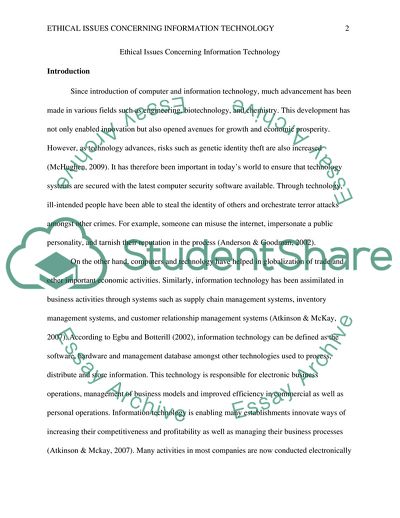Cite this document
(Ethical Issues Concerning Information Technology Research Proposal Example | Topics and Well Written Essays - 3500 words - 1, n.d.)
Ethical Issues Concerning Information Technology Research Proposal Example | Topics and Well Written Essays - 3500 words - 1. https://studentshare.org/information-technology/1799507-computers-and-technology
Ethical Issues Concerning Information Technology Research Proposal Example | Topics and Well Written Essays - 3500 words - 1. https://studentshare.org/information-technology/1799507-computers-and-technology
(Ethical Issues Concerning Information Technology Research Proposal Example | Topics and Well Written Essays - 3500 Words - 1)
Ethical Issues Concerning Information Technology Research Proposal Example | Topics and Well Written Essays - 3500 Words - 1. https://studentshare.org/information-technology/1799507-computers-and-technology.
Ethical Issues Concerning Information Technology Research Proposal Example | Topics and Well Written Essays - 3500 Words - 1. https://studentshare.org/information-technology/1799507-computers-and-technology.
“Ethical Issues Concerning Information Technology Research Proposal Example | Topics and Well Written Essays - 3500 Words - 1”. https://studentshare.org/information-technology/1799507-computers-and-technology.


